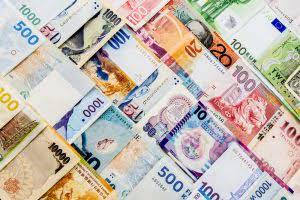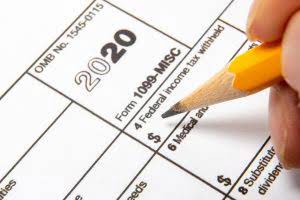
An outstanding check is a check that a company has issued and recorded in its general ledger accounts, but the check has not yet cleared the bank account on which it is drawn. This means that the bank balance will be greater than the company’s true amount of cash. This example underscores the importance of regularly reconciling bank statements to catch these checks and maintain precise financial records for effective business management. Explore the financial implications of outstanding checks, including their effects on account balances and reconciliation processes.

Understanding Outstanding Checks: Definition, Reasons, Consequences, And Resolving Process
The scandal alerted businesses globally to be cautious while issuing checks and ensuring prompt follow-up on uncashed ones. It is crucial to understand the implications of having unpaid bills, delayed vendor payments or employee salaries. The most common risk is being charged penalties due to outstanding amounts past their due date.
How Multi Carrier Shipping Software Can Save Your Business Time, Money, and Headaches

Check float can have a significant impact on your bank account, and it’s important to understand how it works. If you have an outstanding check, you should first follow up with the payee to ensure that they received it and have not lost or misplaced it. Your business might have written checks to employees, vendors, or other parties.

Mitigating the Risks: Strategies for Payors
- Bank float, on the other hand, is the time between when the funds are deducted from your account and when the recipient receives the funds.
- She also contacts the freight forwarding company to see if they ever received the check, since such a long delay in check clearing could mean that the check has been lost in the mail.
- To determine the number of outstanding shares for a company, you can look at the company’s financial statements or check with the company’s investor relations department.
- Most banks offer various types of overdraft protection, such as linking a savings or a credit card to your checking account.
- International Hats imports unique hats and then sells them to its discerning clientele within the United States.
Essentially, a bench warrant has the same consequences as an arrest warrant. The difference https://campatravel.com/bookkeeping/do-i-need-a-personal-accountant/ is that it is issued for different reasons, specifically for being in contempt of court. Because of this, some of the defenses to a bench warrant may differ from those for a standard arrest warrant, which will be further discussed below.
- Void checks require careful documentation and accounting adjustments to maintain accurate financial records.
- I think sometimes their system just gets backed up especially near holidays or end of month.
- Also, outstanding checks may prove a hassle for an otherwise careful consumer.
- The term “outstanding” indicates that the transaction remains uncompleted, with the liability resting on the payor until the check is processed.
- When it comes to managing business accounts, keeping track of checks that are outstanding is crucial.
How Technology is Changing Check Float?

These considerations include both the payor’s and the payee’s obligations concerning outstanding checks what does it mean if a check is outstanding and their implications on financial reporting. Setting Up Overdraft ProtectionIf you do have an occasional check that goes unclaimed, setting up overdraft protection can prevent unexpected NSF fees. Most banks offer various types of overdraft protection, such as linking a savings or a credit card to your checking account. Be sure to check the terms and conditions of these arrangements carefully.
- Be proactive in managing outstanding checks by implementing appropriate procedures, conducting regular audits, and staying abreast of regulatory changes.
- See the ‘Account’ tab of Settings by tapping the gear icon on the Greenlight app home page to confirm when your risk-free trial ends.
- Similarly, if a check is issued close to a bank’s cut-off time for processing checks, it may not be processed until the following business day.
- By keeping track of this information, individuals can easily identify which checks are outstanding and take appropriate action.
- During this period, the funds are still considered available in the account, even though they have not yet been deducted.
When you do a Bank Feed to sync your Accts with the Bank you will then go through a process to Match what the bank shows has cleared. Most of the time the items will match automatically, but there is another section you’ll see that are Partially Recognized and Unrecognized. So you may also see items in there to manual match to what you have in your QBs Bank Register. These communications should inform the payee of the unclaimed funds and provide instructions on how to claim them.
- Outstanding checks create a temporary difference between the balance you track in your personal records and the balance reported by your bank.
- This can prevent false perceptions of account balances due to unresolved checks.
- Cheques issued in one period but still unbanked and unsettled by the recipient at statement cut-off become unpresented cheques.
- By understanding the underlying causes of outstanding checks, you can take proactive steps to prevent them in the future.
- Additionally, the issuer must regularly contact the payee to inquire about the status of the check.
- An outstanding check is any check written on a bank account that hasn’t yet been cashed or deposited and cleared.
One of the potential of having outstanding checks is the imposition of overdraft fees. When a check is presented for payment and there are insufficient funds in the account to cover it, the bank may choose to honor the check and charge the account balance sheet holder an overdraft fee. Overdraft fees can range from a few dollars to over $30 per transaction, depending on the bank’s policies. It is essential for individuals to keep track of their account balance and reconcile it regularly to avoid these costly fees.
